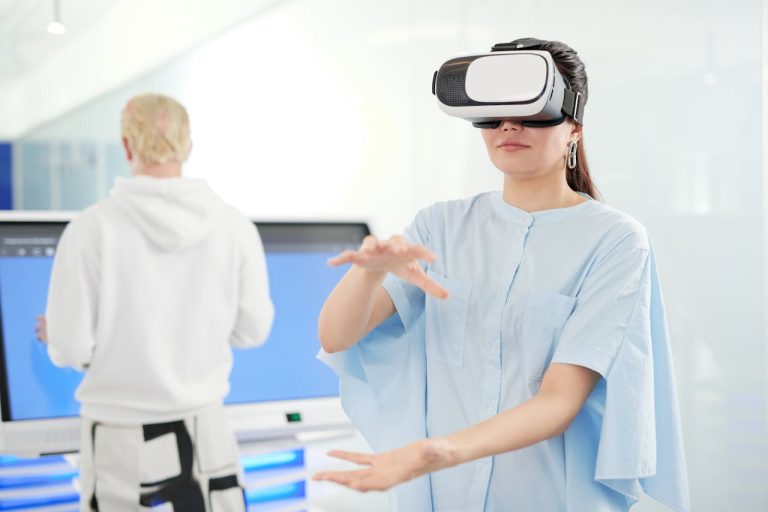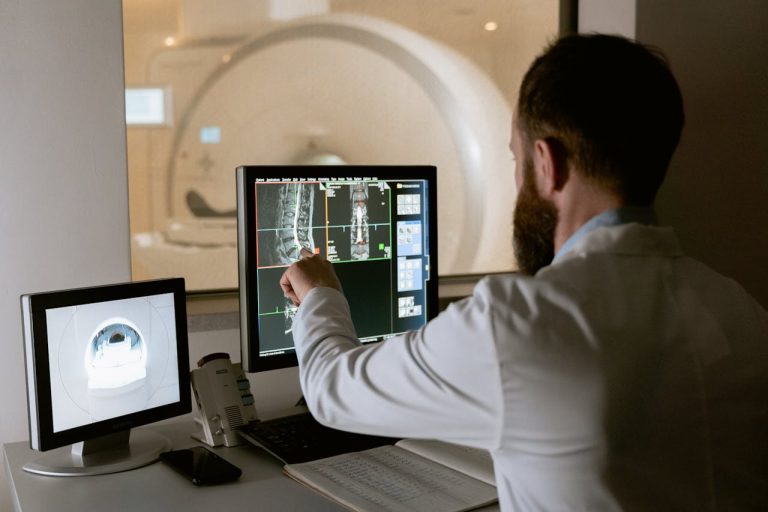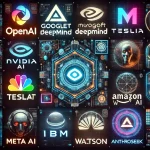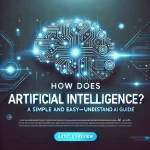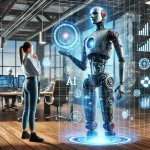“AI replacing doctors” is a question that has sparked intense debate in the medical community. With AI-driven diagnostics, robotic surgeries, and personalized treatments, artificial intelligence is transforming healthcare at an unprecedented pace.
According to a 2024 report by Grand View Research, the global AI in healthcare market is expected to grow from $15 billion in 2024 to $188 billion by 2030, with a CAGR exceeding 40%. AI is already being used to detect diseases more accurately than human doctors in some cases. For example, Google’s DeepMind has developed an AI model that outperforms radiologists in detecting breast cancer.
However, AI in medicine still faces significant challenges. While AI can analyze vast amounts of data and provide precise recommendations, human doctors offer empathy, ethical decision-making, and complex problem-solving—skills that AI has yet to master.
So, what is the future of AI in medicine? Can AI truly replace human doctors, or will it serve as a powerful assistant?
1. The Advancements of AI in Healthcare
AI-Powered Diagnostics
AI is revolutionizing disease detection. In a study published in Nature (2024), an AI model diagnosed lung cancer with 94% accuracy, outperforming human radiologists. Companies like IBM Watson Health and PathAI are already developing AI tools for cancer detection, diabetic retinopathy screening, and cardiovascular disease prediction.
Example:
- Google DeepMind: Its AI system for eye disease detection achieved a 97% accuracy rate, surpassing human ophthalmologists.
- AI in Radiology: The FDA approved AI-powered radiology software like Zebra Medical Vision, which can analyze medical images in seconds.
| AI Application | Accuracy | Compared to Human Doctors |
|---|---|---|
| AI for Lung Cancer Detection | 94% | Higher than radiologists (88%) |
| AI for Breast Cancer Detection | 89% | Similar to human experts |
| AI for Retinal Disease Screening | 97% | Higher than ophthalmologists (92%) |
AI in Robotic Surgery
AI-assisted robotic surgery, such as the da Vinci Surgical System, allows for greater precision, reduced blood loss, and faster recovery times. According to a Harvard Medical School study, AI-powered robotic surgery reduces complication rates by 21% compared to traditional surgery.
Example:
- Johns Hopkins University developed an AI-assisted robotic surgeon called Smart Tissue Autonomous Robot (STAR), which performed soft tissue surgery with higher precision than human surgeons.
AI in Personalized Medicine
AI-driven drug discovery and personalized treatment plans are transforming how diseases are treated. AI algorithms analyze genetic data, patient history, and clinical trials to recommend the most effective treatments.
Example:
- DeepMind’s AlphaFold has predicted the structures of over 200 million proteins, accelerating drug discovery.
- AI-powered platforms like Tempus use machine learning to match cancer patients with personalized therapies, improving survival rates.
2. Limitations of AI in Healthcare
Lack of Human Empathy
AI may excel in diagnostics, but it lacks human intuition, compassion, and emotional intelligence. Studies show that patient trust in AI recommendations is lower than in human doctors, especially for serious conditions.
Ethical and Legal Challenges
Who is responsible if an AI misdiagnoses a patient? Legal frameworks for AI in medicine are still evolving, and medical malpractice laws do not clearly define AI accountability.
Data Privacy and Bias Concerns
AI models rely on massive datasets, but biased training data can lead to discriminatory outcomes. A 2024 study by the New England Journal of Medicine found that AI diagnostic tools were 20% less accurate for minority patients due to underrepresentation in training datasets.
3. The Future: AI as a Doctor’s Assistant, Not a Replacement
Most experts agree that AI will enhance rather than replace human doctors. AI can handle repetitive tasks like data analysis, medical imaging interpretation, and drug discovery, allowing doctors to focus on patient care and ethical decision-making.
Hybrid Healthcare Model: AI + Human Doctors
The ideal future of healthcare involves a collaborative approach:
- AI assists with diagnostics → Doctors make final decisions
- AI analyzes patient data → Doctors provide human insight
- AI recommends treatments → Doctors ensure ethical considerations
A 2025 McKinsey report predicts that AI could automate up to 35% of a doctor’s workload, but human oversight will remain essential.
| Role | AI Contribution | Human Doctor’s Role |
|---|---|---|
| Diagnostics | Analyzing medical images, detecting diseases | Confirming diagnoses, explaining results to patients |
| Surgery | Assisting in robotic procedures | Decision-making, handling complications |
| Treatment Planning | Recommending personalized treatments | Considering patient history and ethical concerns |
AI is a Powerful Tool, But Doctors Are Irreplaceable
AI is revolutionizing healthcare with advancements in diagnostics, robotic surgery, and personalized medicine, but it cannot replace doctors entirely. While AI can process data faster and more accurately, human doctors bring empathy, ethical reasoning, and personalized care—qualities that AI currently lacks.
The future of medicine lies in a hybrid model, where AI serves as an intelligent assistant, enhancing doctors’ capabilities rather than replacing them.
Would you trust an AI doctor with your health? Share your thoughts in the comments!


